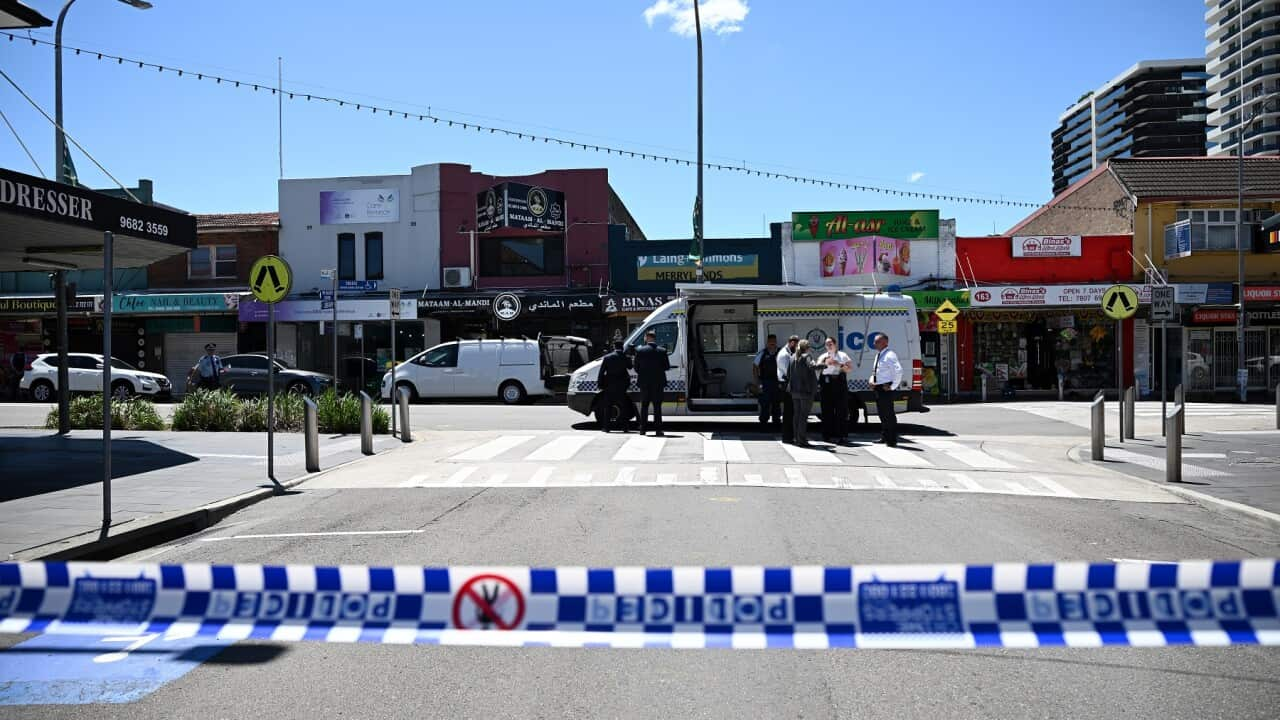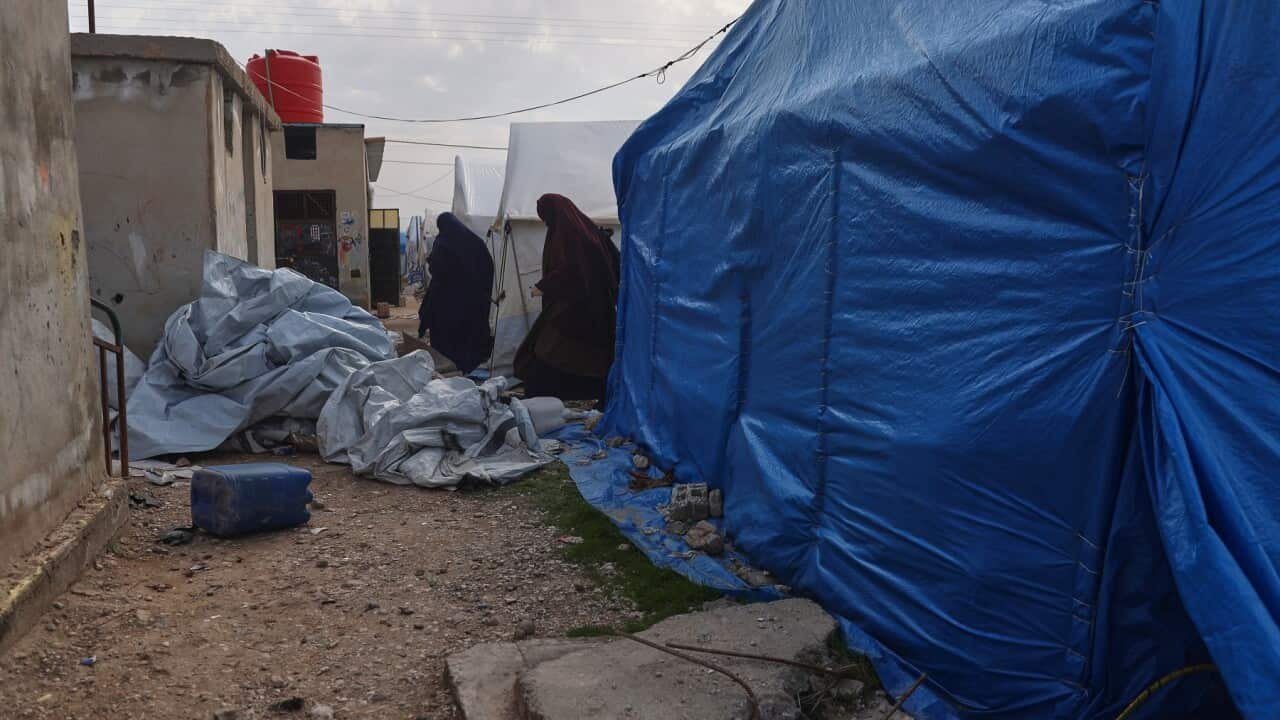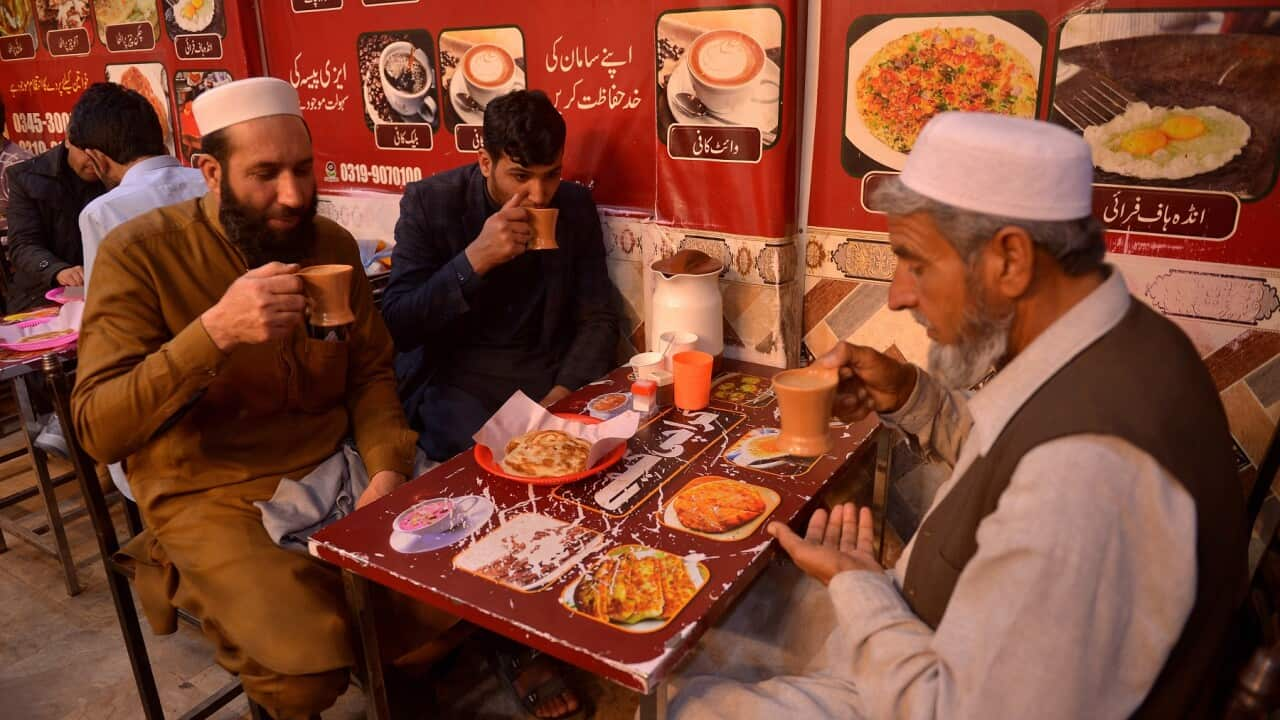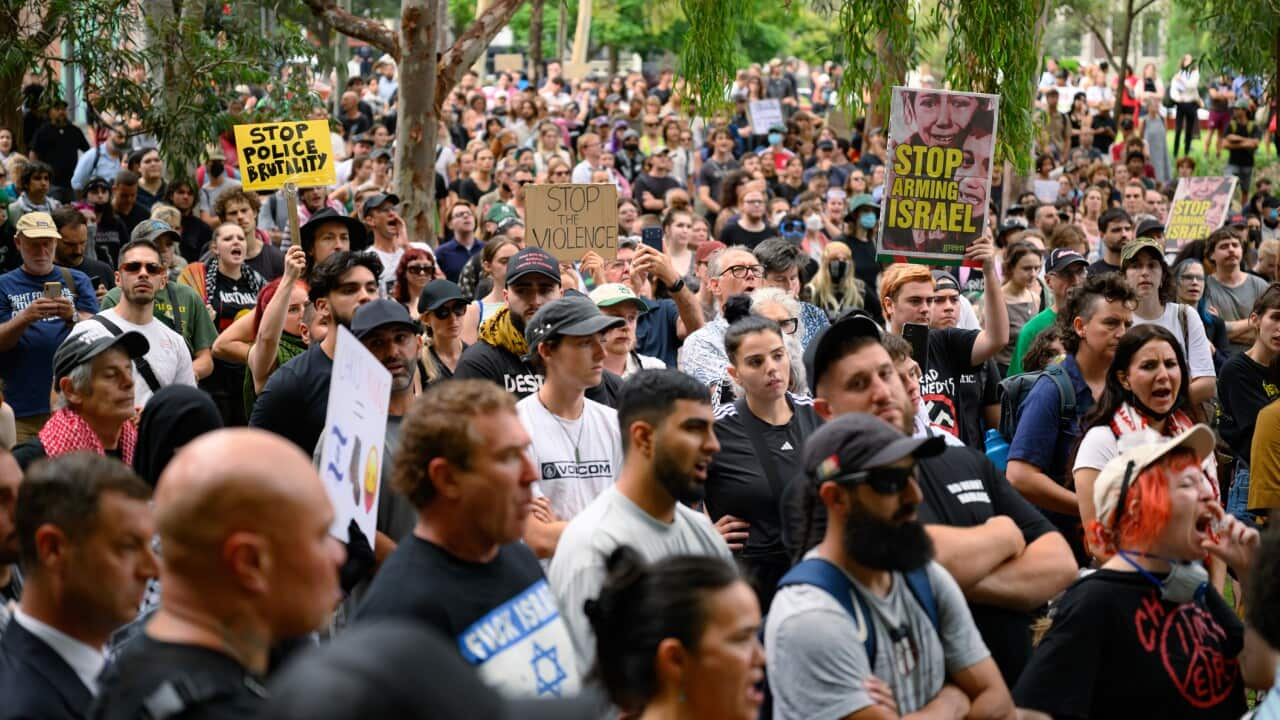Listen to Australian and world news, and follow trending topics with SBS News Podcasts.
TRANSCRIPT
Joe Szwarcberg lived an ordinary life in Poland until the outbreak of war.
He remembers the Nazis marching into his home town of Kozienice, turning it into a ghetto and making daily life for Joe and his Jewish family, a fight for survival.
At the age of 12, the town was liquidated by the Nazis and Joe was separated from his family.
Despite the passage of time, Mr Szwarcberg says those events could never be forgotten.
"'I am the youngest of six children. I had two brothers and three sisters. My parents perished in the Holocaust and my two brothers, I watched when they were shot in front of my eyes. Yes, horrible memories, yes.'"
He recounts sticking together with a group of other boys as they passed from one concentration camp to the other.
"They didn't treat me well. If I didn't work hard, they used to hit me over the head. But somehow luck, or maybe my mother from above looked after me, I don't know, it's a miracle that I survived. I didn't have anybody but I had some boys the same age as me but we kept together. Everywhere we'd go, we'd keep together. If I managed to get an extra piece of bread, we'd share with each other."
He was one of 45 survivors of the liberated Buchenwald camp, who arrived in Melbourne.
They came to be known as the 'Buchenwald Boys', organising social events including a fundraising ball every year.
"We'd go to the cemetery, we called out to all the boys who passed away, we say a prayer, then we come back to a nice hall with nice music, we'd dance and celebrate our liberation. We'd call it our birthday. We were born again. On the 11th of April we were born again."
Only three of the Buchenwald boys remain.
Their memories have been preserved in a new exhibition called 'Everybody had a Name'.
Its curator is Sandy Saxon - who explained the meaning behind the name of the exhibition.
"It comes from a quote from one of our survivors, Tuvia Lipson, and when he would come to talk to school students every week, he would talk about his own personal story, his experience during the Holocaust. When it was asked of him, 'what does the figure, the number six million mean to you', that six million people killed, murdered in the Holocaust, he'd say 'six million, to me it's my mother, my father, my sister, my brother'. He would talk about all the different people who suffered and perished during the Holocaust. It's really to understand that these were people who had lives prior to the Holocaust and it's not just a number."
That figure of six million included Jews, homosexuals, Roma and people with disabilities.
The Melbourne Holocaust Museum's CEO, Jayne Josem, says the exhibition aims to explain the hatred behind why those groups were murdered.
"We do also look at the eugenics, the pseudo-science that was popular in the 1930s, and how that played out in Australia in terms of the Stolen Generation, so there are some touch points throughout the exhibition that are relevant to our Australian history as well."
Ms Josem says another key feature of the exhibition is the migrant experience for survivors arriving in Melbourne.
"Towards the end of the exhibition we do talk about people coming to Australia, rebuilding their lives, and there are all these hero stories of people who made an amazing contribution to Melbourne and Australia. But equally, some were just broken, and just having a family and getting on with life, just getting up every day was a battle, and it was even a battle for those who were successful. It was always with them."
After escaping death through the years in Nazi concentration camps, Joe Szwarcberg finally arrived in Australia at 17 years old.
He's now 92, has grandchildren and great-grandchildren, and devotes his time to educating Melbourne school students about the Holocaust.
"I tell them not to hate. Hate is a horrible thing. I believe hate came up in 1930 in Germany and that's how the Holocaust started. 6 million Jews perished, amongst them were 2.5 million children who perished. It only came from hate. I tell them to be kind to people. If you are kind to people, people will always be kind to you."













